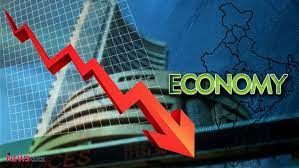While national economic indicators paint a positive picture, a stark contrast emerges in public perception, with many Americans expressing pessimism about the economy, especially in crucial swing states for the 2024 presidential election. Unemployment is low, and the recent jobs report exceeds expectations, yet polls indicate widespread concern. Academic studies delve into this paradox, exploring how personal financial circumstances shape individual economic outlooks and revealing intriguing insights that could reshape the narrative around the nation’s economic health.

Photo form Google
Understanding the Perception-Reality Gap
As the U.S. economy exhibits robust performance indicators, including low unemployment and strong GDP growth, polls reflect a striking disparity. A December 2023 New York Times and Siena College poll reveals that one-third of voters, particularly in swing states, consider the economy, inflation, and the cost of living as the foremost concerns, overshadowing other critical issues like immigration, gun policy, and crime.
Despite positive economic developments, 78% of respondents in a December 2023 Gallup poll rated current economic conditions as fair or poor, indicating a pervasive disconnect between reality and perception. A Brookings Institution analysis suggests that negative news coverage might contribute to this divide, with economic reporting adopting an increasingly negative tone since 2018, despite strengthening economic fundamentals.
The public’s economic sentiment, as highlighted in the polls, challenges the conventional narrative of a thriving economy. Journalists covering the 2024 political landscape can leverage insights from academic research to better understand and communicate the factors influencing public perception and contribute context to their reporting.
Insights from Academic Research: Unraveling the Perception Puzzle
Academic studies provide valuable insights into the economic perception puzzle. One study, featured in the Personality and Social Psychology Bulletin, explores how economic inequality fosters a zero-sum outlook, wherein gains for some are perceived as losses for others. This zero-sum thinking, prevalent among participants exposed to highly unequal salary distributions, influences broader views on economic prosperity and injustice.
Another study, published in the European Journal of Social Psychology, reveals a correlation between belief in conspiracy theories and negative views of national economic performance. Interestingly, this tendency is more pronounced in countries with lower GDP per capita, suggesting a global pattern.
Research in Political Research Quarterly challenges the reliance on traditional economic indicators by analyzing poverty risk as a lens for economic perception. The study underscores that individual experiences, especially the risk of poverty, significantly shape perceptions, often deviating from macroeconomic indicators like GDP.
READ ALSO: Cost Of Living Goes Up: Prices Rise For Americans In Two Important Areas

















































